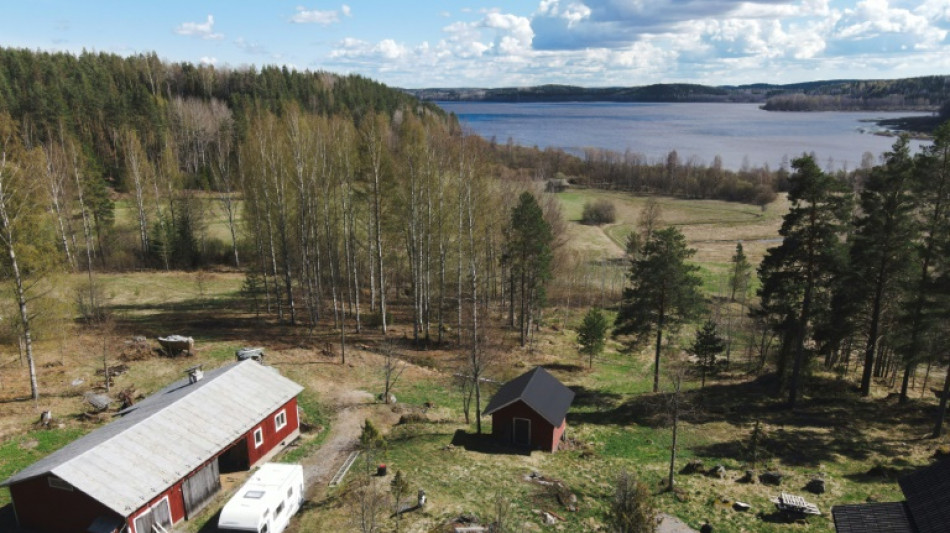
-
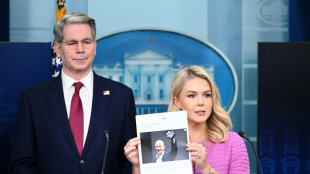 W. House slams Amazon over 'hostile' plan to display tariff effect on prices
W. House slams Amazon over 'hostile' plan to display tariff effect on prices
-
What we know ahead of conclave to elect new pope

-
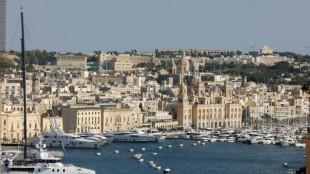 EU top court rules 'golden passport' schemes are illegal
EU top court rules 'golden passport' schemes are illegal
-
Mounds of waste dumped near Athens's main river: NGO
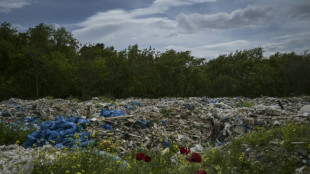
-
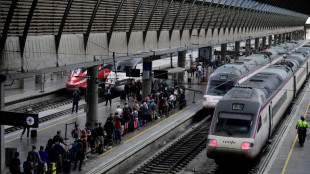 Spain starts probing causes of massive blackout
Spain starts probing causes of massive blackout
-
France targets cheap Chinese goods with fee on packages

-
 Amnesty accuses Israel of 'live-streamed genocide' in Gaza
Amnesty accuses Israel of 'live-streamed genocide' in Gaza
-
Japan, Philippines leaders vow to deepen security ties
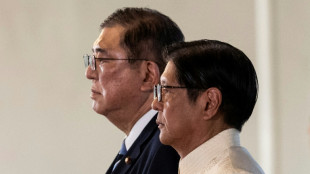
-
 AstraZeneca moves some production to US amid tariff threat
AstraZeneca moves some production to US amid tariff threat
-
Shadman's ton gives Bangladesh lead in 2nd Zimbabwe Test

-
 Barca's Yamal: I admire Messi but don't compare myself to him
Barca's Yamal: I admire Messi but don't compare myself to him
-
Pfizer profits dip on lower Paxlovid sales

-
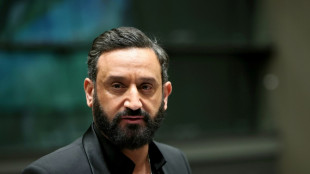 French right-wing TV host fans talk of presidential bid
French right-wing TV host fans talk of presidential bid
-
Two men in court charged with 'moronic' felling of famed UK tree
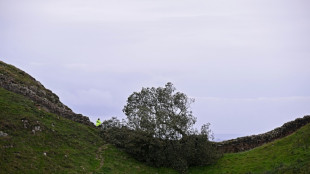
-
 Amnesty accuses Israel of 'live-streamed genocide' against Gazans
Amnesty accuses Israel of 'live-streamed genocide' against Gazans
-
Spotify posts record profit in first quarter

-
 Sciver-Brunt named as England women's cricket captain
Sciver-Brunt named as England women's cricket captain
-
GM profits top estimates, but automaker reviewing outlook due to tariffs
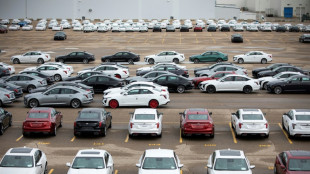
-
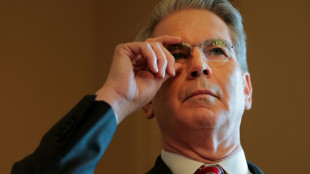 Stock markets edge up as Trump softens tariff pain for auto firms
Stock markets edge up as Trump softens tariff pain for auto firms
-
Pricier trainers? Adidas warns on US tariff impact

-
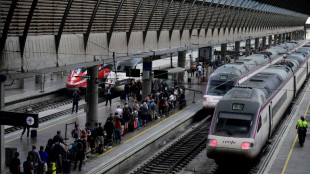 Spain, Portugal rule out cyberattack for massive blackout
Spain, Portugal rule out cyberattack for massive blackout
-
Suryavanshi, 14, dubbed India's next superstar after shattering records
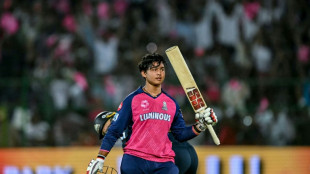
-
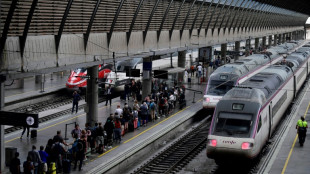 Power back in Spain, Portugal after massive blackout
Power back in Spain, Portugal after massive blackout
-
Pakistan says it shot down Indian drone along Kashmir border
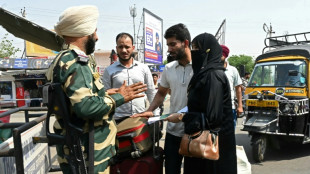
-
 Cardinals run the media gauntlet ahead of conclave
Cardinals run the media gauntlet ahead of conclave
-
BP profit drops 70% amid pivot back to oil and gas

-
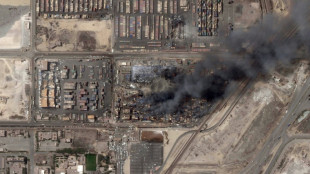 Iran says fire contained after deadly blast at key port
Iran says fire contained after deadly blast at key port
-
Irish rappers Kneecap deny support for Hamas, Hezbollah

-
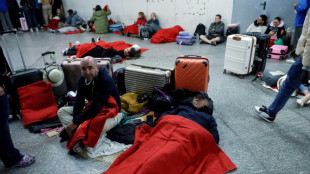 Blackout plunges Spain into chaotic night of darkness
Blackout plunges Spain into chaotic night of darkness
-
Convicted cardinal confirms he will sit out conclave
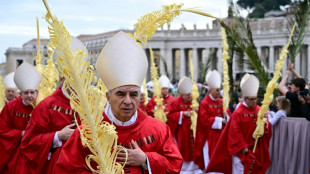
-
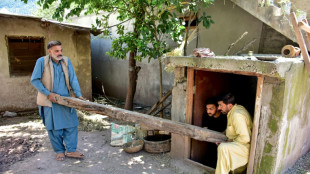 Kashmiris fortify bunkers anticipating India-Pakistan crossfire
Kashmiris fortify bunkers anticipating India-Pakistan crossfire
-
Adidas warns US tariffs to push up prices

-
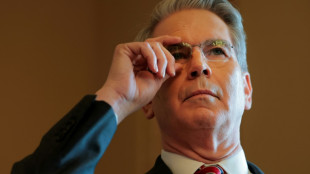 Markets boosted as Trump softens tariff pain for auto firms
Markets boosted as Trump softens tariff pain for auto firms
-
Suryavanshi, 14, dubbed 'next superstar' after batting records tumble
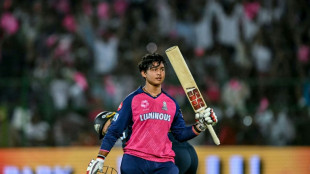
-
 Australian doubles player Purcell accepts 18-month doping ban
Australian doubles player Purcell accepts 18-month doping ban
-
Kashmir attack unites political foes in India, Pakistan
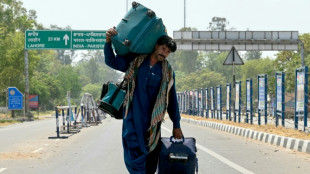
-
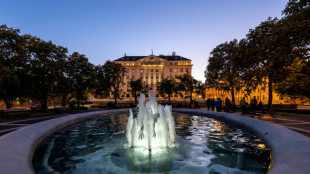 Croatia hotel toasts dizzying century of stars, sovereigns and champagne
Croatia hotel toasts dizzying century of stars, sovereigns and champagne
-
Kenya's desperate need for more snake antivenom
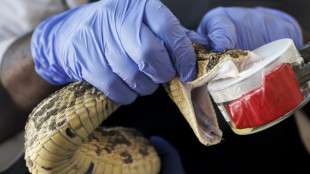
-
 Les Kiss in frame with Wallabies set to name new coach
Les Kiss in frame with Wallabies set to name new coach
-
Cavaliers scorch Heat, Warriors down Rockets in thriller

-
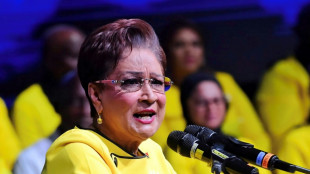 Opposition wins Trinidad and Tobago election, returning Persad-Bissessar as PM
Opposition wins Trinidad and Tobago election, returning Persad-Bissessar as PM
-
Study sheds light on origin of Australia's odd echidna

-
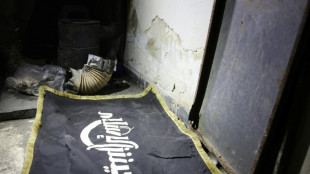 France tries Syrian Islamist rebel ex-spokesman on war crime charges
France tries Syrian Islamist rebel ex-spokesman on war crime charges
-
Trump boasts of 'fun' 100 days, but Americans disenchanted
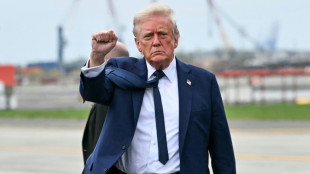
-
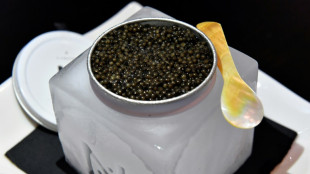 Elitist no more, caviar is turning casual
Elitist no more, caviar is turning casual
-
Amnesty accuses Israel of 'live-streamed genocide' against Gaza Palestinians

-
 Inter slump puts season at risk ahead of daunting Barca trip
Inter slump puts season at risk ahead of daunting Barca trip
-
Power returns to most of Spain, Portugal after massive blackout
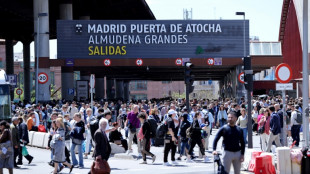
-
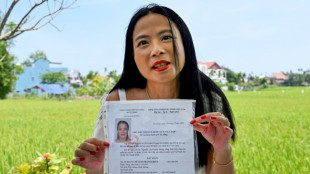 'I have hope': Vietnam Babylift survivor's search for birth mother
'I have hope': Vietnam Babylift survivor's search for birth mother
-
US climate assessment thrown into doubt as Trump dismisses authors
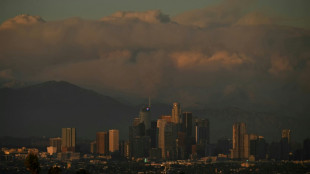

NATO membership prospect brings relief for border Finns
Troubled by the war in Ukraine, Finnish pensioner Martti Kailio, 73, keeps his hunting rifle to hand at his home in Hiivaniemi, overlooking the Russian border on the other side of a lake.
"It makes me so angry that I would be amongst the first volunteers to go out there with a loaded gun, even though I'm not young enough to be a soldier anymore," he says.
For many Finns living on the eastern border, the prospect of their country applying to join NATO has been greeted with relief.
"We should have joined earlier. No point in dragging it out anymore", Kailio says.
Sharing a 1,300-kilometre (800-mile) border with Russia, Finland has in the past stayed out of military alliances.
But after its powerful eastern neighbour invaded Ukraine in February, political and public opinion swung dramatically in favour of membership, with the Finnish president and prime minister on Thursday calling for the country to join NATO "without delay".
For some Finns, Russia’s assault on Ukraine has brought up painful memories of the 1939 Winter War, when Red Army troops invaded the Nordic country.
As in Ukraine, the small Finnish army put up a fierce resistance and inflicted heavy losses on the Soviets.
Nevertheless, Finland had to cede vast areas of land to the Soviet Union.
- 'A necessity' -
Veli-Matti Rantala, 72, whose farmhouse is just a short walk from the Russian border in Suokumaa, holds a rusty army helmet and tells stories of the battles that took place in the surrounding forests.
"I'm not too worried about the situation anymore, now that we're joining the Western community, help is coming," he says. To him, Finland joining the alliance is a "necessity".
Living just a few hundred metres from the Russian border in Vainikkala, teacher Jaana Rikkinen, 59, grew up hearing the Russian border guards on the opposite side of the lake.
Rikkinen, who lost her uncles in the war, also feels "relieved" that Finland is now joining NATO, even though previously she had her doubts about the bloc.
She recalls how even after the war, there were regular illegal border crossings near her home.
"It always happened at night. First, you heard the hounds, and then the gunfire," Rikkinen says, adding that she hoped she only ever heard warning shots.
In 2001, a Russian army deserter crossed the border and broke into a house next door before killing himself after an exchange of fire with police.
Rikkinen fears that if the situation in Russia deteriorates, there might be more people trying to cross the border.
- Trust gone -
Despite the area’s history, the residents have always had plenty to do with those on the other side of the frontier.
"While Russia has always been feared -- throughout the ages -- in these parts, we have had an everyday interaction with Russians," Rantala says.
He says Finns living on the border are very familiar with Russia and many have friends there.
Before the war, Rikkinen used to go for weekly shopping across the border and weekend trips to Saint Petersburg, and had nothing "negative to say" about Russians.
But that "trust towards our neighbours is now gone".
"The border is shut, and if we went there, we don’t know what could happen," she says.
With most livelihoods in Vainikkala linked to Russia, and the train station and border guard employing most of the villagers, Rikkinen fears that the border communities are going to suffer because of the conflict.
"I just hope the war will end," she says.
A.Jones--AMWN